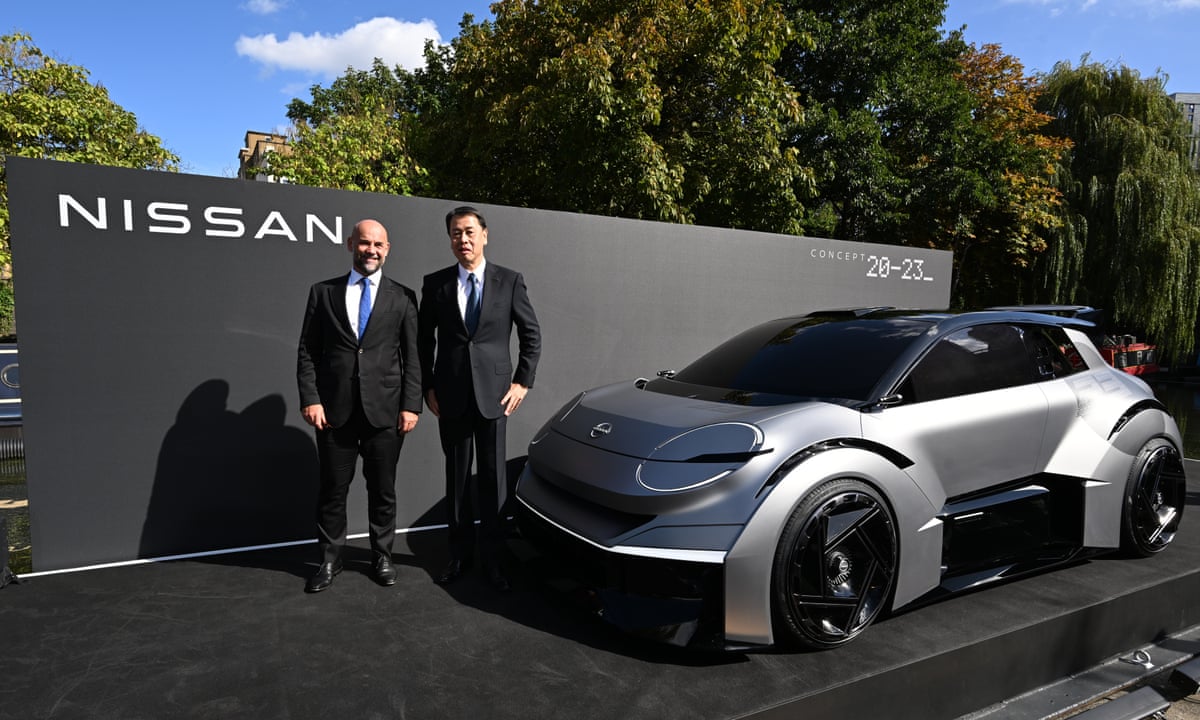Nissan is ramping up its efforts towards electrification, pledging that all cars sold in Europe will be electric by 2030. This decision comes in the face of the UK’s decision to push back its ban on the sale of new petrol and diesel vehicles to 2035.
The CEO of Nissan emphasized that this move is motivated by a commitment to the environment and sustainability. However, the UK’s delay in implementing the ban has raised concerns within the automotive industry, particularly regarding potential delays in consumer adoption of electric vehicles, as voiced by the Society of Motor Manufacturers and Traders (SMMT).
Nissan’s Ambitious Plans for Electric Vehicle Advancements
Nissan is set to unveil innovative battery technology by the close of this decade, aiming to significantly slash both the charging duration and expenses associated with electric vehicles (EVs). “Nissan will make the switch to full electric by 2030 in Europe. We believe it is the right thing to do for our business, our customers, and for the planet,” stated Makoto Uchida, Nissan’s CEO.”
In an interview with the BBC, Mr. Uchida expressed the company’s commitment to reducing the cost of electric vehicles, aiming for them to be as affordable as petrol and diesel cars within the next few years. He emphasized their approach, considering technology advancement, collaboration with suppliers, and government involvement to achieve cost competitiveness for consumers.
“We are looking at it from the point of view of the technology, from the point of view of cooperating with suppliers, and of course working with the government on how we can deliver that kind of cost competitiveness to the consumer ” Mr. Uchida stated. When asked if this price parity would be achieved by 2030, he affirmed, “That’s our goal.”

Additionally, Mr. Uchida revealed the company’s expedited efforts in developing all-solid-state battery technology (ASSB), which offers lighter weight, cost-effectiveness, and faster charging. He mentioned plans for a pilot plant for ASSB in Japan starting next year and their ambition to achieve mass production by 2028. Despite acknowledging challenges, he expressed confidence in their progress towards meeting this target.
Strategic Investment of Nissan in UK Battery Manufacturing
Nissan stands as a unique player in the automotive industry within the United Kingdom, possessing its own battery manufacturing capabilities. In a strategic move last year, the company unveiled an ambitious plan to infuse £1 billion into the expansion of its battery facility, strategically located adjacent to its Sunderland car production plant. This venture received a boost from the government, which pledged a substantial contribution of £100 million towards the initiative.
This substantial investment places Nissan in a favorable position compared to its counterparts, who heavily rely on importing batteries primarily sourced from China. The move aligns with the looming post-Brexit trading regulations set to come into effect in the upcoming year. According to these rules, vehicles manufactured in the UK or the EU must source 45% of their components by value from within the UK or EU to evade a 10% tariff when exporting between these regions.
Of notable concern is the cost associated with batteries, recognized as the priciest component in an electric vehicle. This concern has triggered a collective response from manufacturers based in both the UK and the EU. They have advocated for a deferral of the 45% sourcing requirement until manufacturing plants are adequately prepared and capable of meeting the criteria for battery supply.
In light of these challenges, Business Secretary Kemi Badenoch conveyed the government’s optimism during a recent interview with the BBC. The government is actively working towards securing a deferral that would accommodate manufacturers and synchronize with the readiness and capacity of production facilities to meet the specified battery sourcing thresholds.
The post Nissan Commits to Full Electric Transition by 2030 Despite Delay in Petrol Ban appeared first on TechStory.







0 comments:
Post a Comment